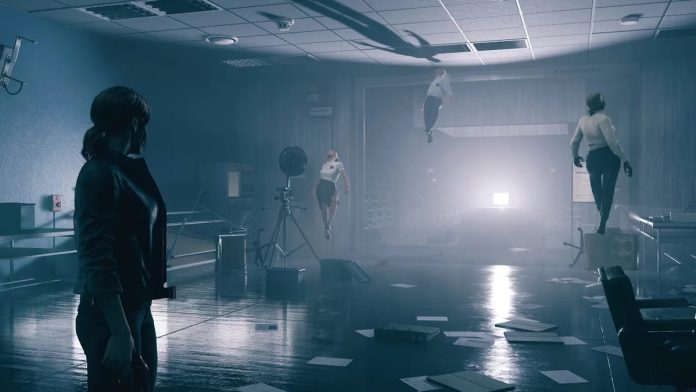Last year, Remedy released the survival horror title Alan Wake 2, a sequel effectively 13 years in the making and the next step in the studio’s universe of connected games. Among them is Control, a brilliant and utterly weird third-person shooter focusing on the character Jesse Faden and her exploits with the Federal Bureau of Control, a government agency that tries to contain supernatural threats and phenomena. In Control, you face off against these forces inside of The Oldest House, a brutalist office building in the heart of New York whose unwieldy innards are constantly shifting.
That is just the tippy top of the bizarre iceberg that is Control, which is not only celebrating a fifth anniversary this week but is also coincidentally on sale on PlayStation. If you care (and I do believe you should), you can nab yourself the ultimate edition of Control (including its very necessary DLCs) for $10.
I say that these are necessary because Control isn’t just tangentially connected to Alan Wake and the universe that Remedy is building. It and its supplementary material (as well as the sequel and multiplayer spinoff that are on the way) are quintessential to understanding the connectedness of it all. You get a much fuller picture of the scope of things by first playing Control, which outlines a lot of the concepts, like Altered World Events and Objects of Power, that factor into Alan Wake 2 quite heavily. It’s like a kind of side-sequel to the first Alan Wake, providing a wider window into the larger world that it only teased and connecting countless dots in the interim.
Beyond its role as connective tissue, Control is also its own loving ode to all things weird. The FBC is basically just the SCP Foundation, which has its own basis in the history of internet creepypasta and urban myths. It is a world where the weirdo monsters we created as children are real and where cursed objects do exist. Some, like the floppy disk, grant blessings like the ability of telekinesis. Others, like a rubber duck, might dart around and prove to be a simple nuisance. And then there are fridges that might contain powerful beings beyond comprehension unless someone maintains eye contact with it at all times.
Much like the things it attempts to contain, the FBC’s headquarters is impossible to pin down. Unless you know to look for it, or are a particularly powerful parautilitarian, you can’t actually find and enter the Oldest House. Once you’re there, there’s no guarantee you won’t get lost within its walls either. That, or die in one of its “shifts” that drastically changes the layout of whole floors and departments.
All the while, the Oldest House is simultaneously the most aggressively mundane office building. Everywhere you look, concrete walls are blanketed by the glow of sterile white office lights. Typical desks and office chairs dot cubicles and offices that you explore. Little boxes all the same as far as the eye can see. But despite that, the environment is still suffused with an uneasy, sometimes menacing, feeling. One office will have way too many post-it notes adorning its surfaces, while a hallway in another wing of the building will seemingly spiral into nothingness. Bodies of office employees hang suspended in the air. And for all of the bland office space, there are jaw-dropping and impossible vistas to be seen in places like the Black Rock Quarry, or the very bottom of the Oldest House.
The environment does a lot of talking in Control. Whole stories can be gleaned from the layout of things, but Control also features a lot of notes, often shared between workers in departments that expertly build out and add further mystique to the game’s fiction. And then Control does one of my favorite things that only a game can do, and allows you to occasionally explore and uncover the mysteries it builds up in the background of the central thrust of the story. Reader, it rarely, if ever disappoints on this front.
Control, down to its central weapon, is just endlessly intriguing and teeming with possibility. The Service Weapon, itself an Object of Power, can morph into all manner of firearms, including a pistol, a shotgun, and eventually even a kind of grenade launcher. In tandem with Jesse’s increasing range of abilities, such as levitation and a shield, it’s very easy to become this all-encompassing powerhouse. Maybe that’s what I really love about Control. Not the power fantasy of it all, but how impossible it feels to fence in or nail down, how consistently and expertly it adapts different modes and forms that feel they can all breathe within Control’s seemingly limitless possibilities.
Control is, simply put, one of the most special games of the last generation. Despite struggling a bit out the door, it eventually found its audience and has already grown into a title worthy of reverence. If you don’t already know what’s up, do yourself a favor and block off some time to pick up Control and just sink beneath its surface. You will not regret the time you’ll spend uncovering what the Oldest House has to hide.

